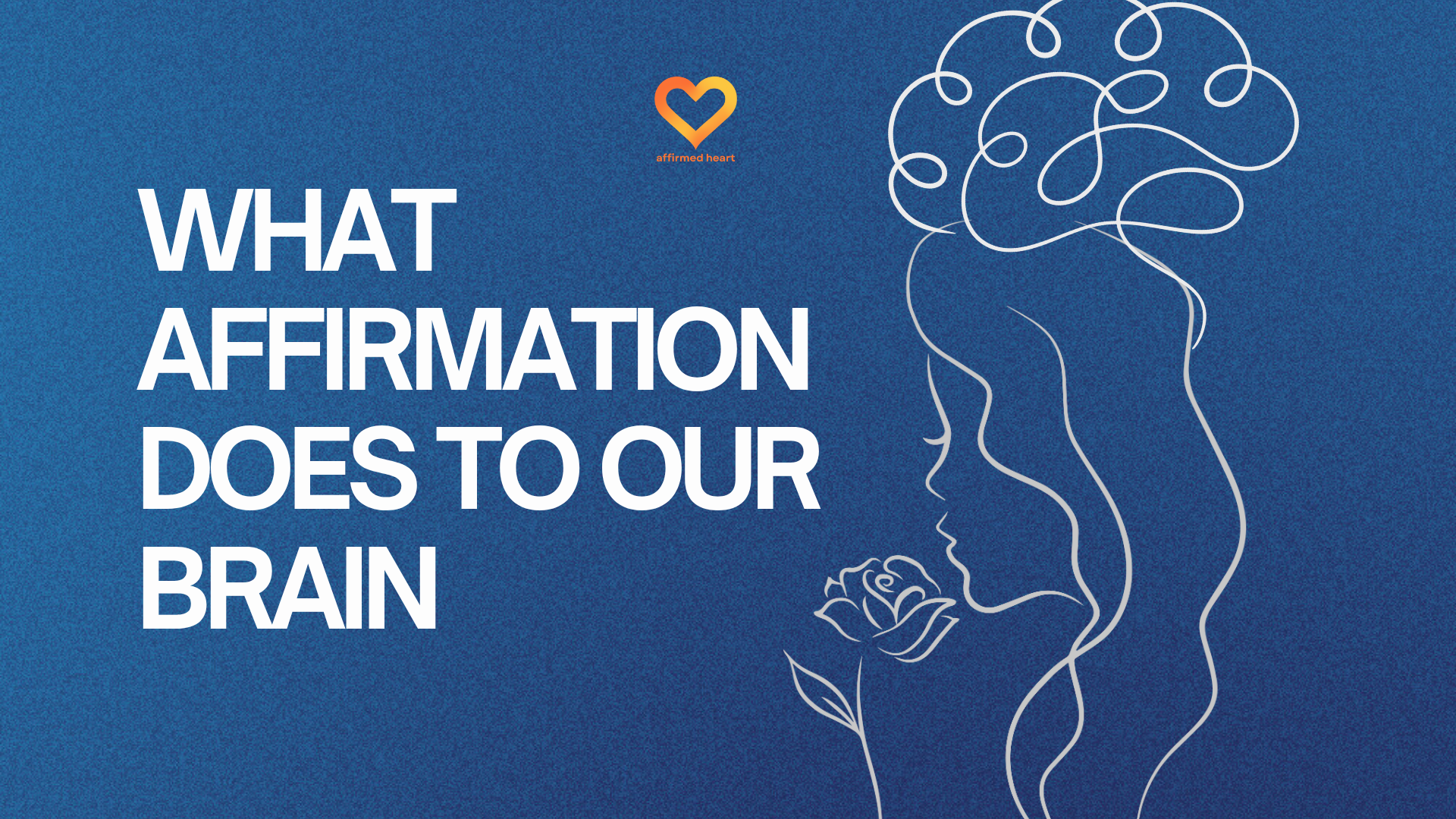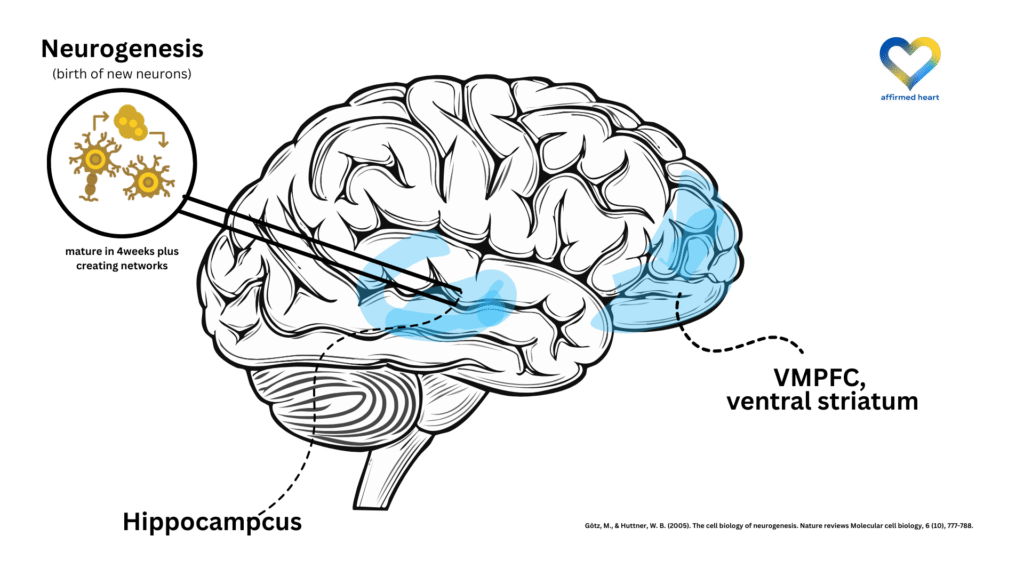#NEUROAFFIRMING

Have you ever wondered what happened in your brain when you are speaking life and reaffirming your beliefs for healthy esteem and self empowerment?
We are always told to think positive and say positive things. But let me tell you, affirmations are not “positive thinking.”
Affirmations retrain our brain through neuroplasticity. Affirmations empower our core values and help us not to only believe, achieve and change. But to take care of our brain in the process.
Affirmation helps by rewiring our brain.
It activates reward and self-processing regions (VMPFC, ventral striatum), supports stress buffering and helps us process negative or threatening information more openly.
Affirmations aren’t just “feel-good talk”. They engage real brain networks that help us feel more positive about themselves and value their core values, which can lead to behaviour change.
Affirming core values influences neural plasticity, including:
- neurogenesis (birth of new neurons): where new neurons are birthed and grow to connect to other neurons building stronger networks for function.
- brain regions ( Hippocampus & Ventual Striatum): where the seat of our mood, memory and learning is built and expressed.

How Affirmation Supports Neurogenesis
Neurogenesis (especially in the hippocampus) increases when the brain has:
- reduced stress hormones
- increased positive affect
- increased safety
- increased reward signalling
- increased motivation
- strengthened prefrontal cortex activity of movement and thinking.
Speaking words to yourself is an act of Self-affirmation. Which can range from words you speak to yourself to motivate yourself, words from God, words from good reports etc.
Self-affirmation has been shown to:
- Reduce stress and cortisol responses : which supports hippocampal neurogenesis.
- Activate reward circuits: which promotes dopamine-driven synaptic growth.
- Increase emotional safety & reduce threat responses: lower threat = more neural resources available for growth.
4 Rewards we benefit from when affirming healthy words
- Improved self-esteem & self-worth: By reflecting on what truly matters to you, affirmations remind you of your values and what you care about most.
- Resilience to stress: When you start your day (or pause during stress) with affirmations, you activate brain regions that buffer stress, making you more emotionally stable.
- Better behaviour change: Because affirmations help you see threat or challenge in a self-relevant, valued way, you’re more likely to engage with behaviour change (e.g., health behaviour, personal goals) rather than avoid it.
- Better emotional regulation: Affirmation makes you less defensive and more open to difficult experiences, which helps with emotional processing and growth.
In summary, affirmations activate the exact brain conditions that allow neurons to grow and connect. Allowing your words birth new neurons to grow !
references:
- Cascio, C. N., O’Donnell, M. B., Falk, E. B., & others. (2016). Self-affirmation activates brain systems associated with self-related processing and reward and is reinforced by future orientation. Social Cognitive and Affective Neuroscience, 11(4), 621–629. OUP Academic
- Dutcher, J. M., Eisenberger, N. I., Woo, H., Klein, W. M. P., Harris, P. R., Levine, J. M., & Creswell, J. D. (2020). Neural mechanisms of self-affirmation’s stress buffering effects. Social Cognitive and Affective Neuroscience. 15(10), 1086–1096. PubMed Central
- Harris, P. R., & Napper, L. (2011). Self-affirmation alters the brain’s response to health messages and subsequent behavior change. Social Cognitive and Affective Neuroscience. (fMRI study; VMPFC activation predicted behavior) PubMed+1
- Kober, H., Mende-Siedlecki, P., Kross, E. F., Weber, J., Mischel, W., Hart, C. L., & Ochsner, K. N. (2010).
Prefrontal–striatal pathways underpinning successful emotion regulation.
Neuron, 66(1), 157–170. https://doi.org/10.1016/j.neuron.2010.03.017 - Schmeichel, B. J., Finley, A. J., Crowell, A. L. (2018). Self-affirmation enhances processing of negative stimuli among threat-prone individuals. Social Cognitive and Affective Neuroscience, 13(6), 569–577. OUP Academic
